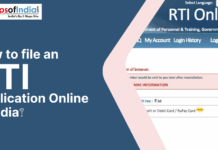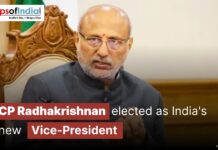NITI Aayog (National Institution for Transforming India) replaced the planning commission after being in service for 64 years. It was set up on January 1, 2015, to enhance the country’s economic growth. It led to institutional changes in administration as people had anticipations for a new outlook and development in the Modi government’s tenure. Here, in Sanskrit, the word “NITI” refers to morality, behaviour, guidance. Playing a vital role in the nation’s progress, it considers every policy carefully with national interests, especially security concerns. It has two hubs: Team India Hub, which works in coordination for the involvement of Indian states with the central government, and the other is Knowledge and Innovation Hub, which enlarges the capabilities of the institution’s think-tank.
Composition of NITI Aayog
Headed by Prime Minister Narendra Modi as its chairperson, the governing council comprises Chief Ministers of the states and Lt governors of all Union territories of India. The Vice-Chairman of the institution is Dr Rajiv Kumar (September 2017 – present). Regional councils are formed to take up specific issues and possibilities affecting over one state in a meeting chaired by the Prime Minister with all the Chief Ministers. PM nominates renowned specialists, experts with the required domain knowledge. Full-time and Part-time members (on a rotational basis) with a maximum of 2 members from leading universities, research organisations are also a part of the team. Ex Officio members include the Council of Ministers and CEO (Chief Executive Officer); the Prime Minister nominates both. CEO will be in the rank of Secretary to the GOI (Government of India). Amitabh Kant is the CEO of an institution that abolished the Planning Commission six years ago. He is a 1980-batch IAS officer of the Kerala cadre.
In his first address from the ramparts of the Red Fort in 2014, Prime Minister Narendra Modi had announced the abolition of the 64-year-old commission with a new institution “having a new design and structure, a new body, a new soul, a new thinking, a new direction, a new faith towards forging a new direction to lead the country” based on “creative thinking, public-private partnership, optimum utilisation of resources, utilisation of youth power of the nation” to strengthen the state governments and the federal structure.
NITI Aayog’s record
The NITI Aayog has proposed some findings on a range of subjects such as twice the increase of farmers’ incomes by 2022, conducting simultaneous elections in 2024, a 100% change to electric vehicles by 2030, introducing a “One Nation, One Health System” policy by 2030, increasing the investment rate in the country from 29% of GDP to 36% by 2022, and aiming malnutrition-free India by 2022, among many others.
Objectives of NITI Aayog
1) To foster cooperative federalism through well-ordered backed ideas and mechanisms with the states on a flawless basis.
2) To develop ways for a reliable strategy at the village level and aggregate these slowly at higher levels of the government.
3) To emphasise different sections of the society that may be at the peril of not benefiting financially from economic achievements.
4) To ideate strategic and long-term policy and programme frameworks and initiatives and assess their development and effectiveness.
5) To preserve a state-of-the-art Resource Centre, be a repository of research on good governance and best practices in sustainable and equitable development, as well as help their distribution to participants.
6) To offer a space for the resolution of inter-sectoral and inter-departmental issues to accelerate the completion of the progressive agenda.
7) To effectively screen and evaluate the execution of programmes and initiatives, comprising the needed resources to bolster the possibility of success.
8) To work on technology improvement and space building for the discharge of programs and initiatives.
9) To be a part of other important tasks to the implementation of the national development plan
10) To offer recommendation and urge agreements between important stakeholders and national, international Think Tanks, including educational and policy research institutions.




